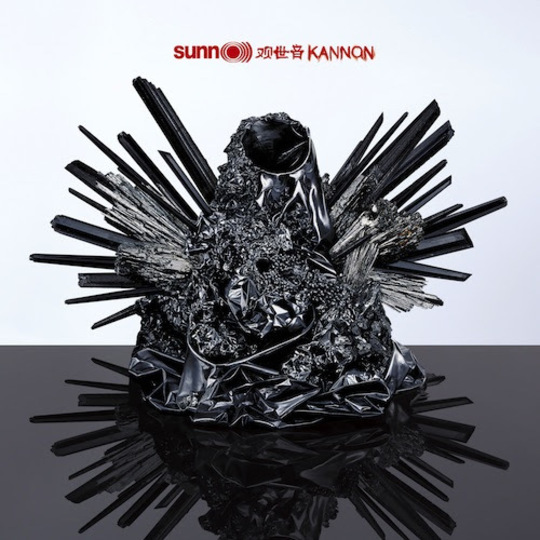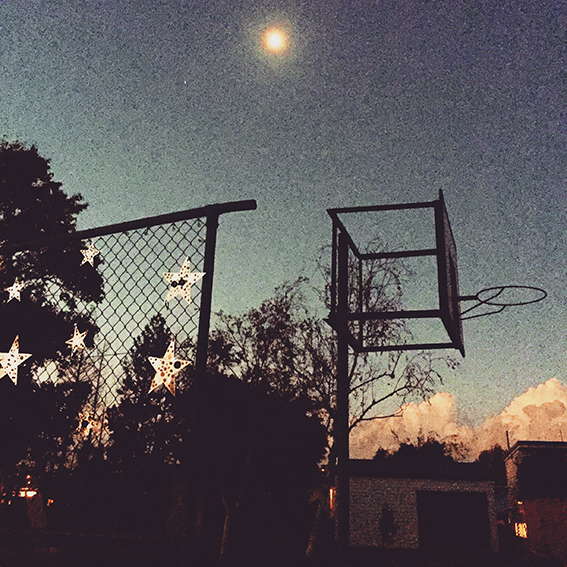The seventh studio album to be solely credited to Sunn O))) feels like a wilful effort to clean the slate, having dislodged it from the sides of the quarry via time-honoured methods of tone and volume. Founded in the late Nineties by Stephen O'Malley and Greg Anderson, ostensibly to pay tribute to Dylan Carlson's then-dormant drone-meets-metal project Earth, in due course Sunn O))) begged the pun and eclipsed their predecessors for conceptual extremity. Chords dragged out for minutes at a time, at a dB level that distorts the air and blows up PAs (this happened on the most recent occasion I saw them, in Bristol this year): lazy detractors would have them pegged as a one-note band, in a very real sense. Yet the three tracks on Kannon comprise perhaps their least diverse album since their formative, early-Noughties period.
If it's a back-to-basics move by the duo, it follows their furthest-reaching foray into pastures of acceptable extremity. When Soused, a collaboration with Scott Walker, was announced in the summer of 2014, the pairing could reasonably be termed a surprise; ripe with both wit and power, the results nevertheless felt like a fairly logical convergence. For my money, the finest thing Sunn O))) have put their name to during this decade emerged earlier that year: Terrestrials, an unusually spacious and pleasant teamup with Ulver. Kannon, like Terrestrials, says its three-section piece in under 40 minutes, but is a more intense, punishing affair.
'Kannon 1's clear-toned feedback intro presages riffs that roil in the mix for a mere few seconds before the next chord falls, by the standards of myriad Sunn O))) releases a positive burst of breakneck speed. Hungarian black metal vocalist and semi-regular Sunn O))) foil, Atilla Csihar, enters at around the two and a half-minute mark, and the notion of voice-as-instrument which he's already practised with this band becomes even more physically literal. His blackened gurgle on, notably, 'Decay [The Symptoms Of Kali Yuga]' from 2004's White2 might have been in an unfeasibly low register, but had a tangible spirituality to it. In the decade hence, the Mayhem frontman has dropped lower still, the reverberations from his gullet doing the work of a most peculiarly tuned bass FX unit and blacking out what few shards of light stem from Anderson and O'Malley's guitars.
If you didn't know who was responsible for the intro to 'Kannon 2', you might expect matters to break into a real no-foolin' metal gallop in time. This doesn't quite happen, but a rare sense of see-sawing momentum is apparent over these nine minutes. Csihar's vocals this time are steely intonations at a pitch achievable to the average adult human; guitars creak and wheeze in outsized feedbacking fervour, like a harmonium as large as a master bedroom. It actually sounds a little like O'Malley's pioneering late Nineties doom band Burning Witch, except without a drummer… is what I thought to myself, before I fished out the credits and found that BW drummer Brad Mowen is credited as playing, specifically, the bass drum on this track. I mean, my ears can't actually isolate it – nor, for that matter, can they tease out the synthesizer parts purportedly laid down by Oren Ambarchi, Steve Moore, Randall Dunn and Rex Ritter on this 'un – but it's a cute quasi-reunion, and as destructive-sounding an aural rumble as Sunn O))) have submitted for some time.
This atmosphere is upheld by 'Kannon 3', appropriately for an album the band describe as 'three pieces of a triadic whole'. While Csihar's vocals run the gamut on this one, from guttural to ghastly, the guitars are very much separate entities, more so than the other two tracks: one a vaguely spacerock-y clarion call, I think the work of Anderson if my reading of the album credits is correct, one a low-slung punisher with – given setting and amplification – all the ingredients to suck the oxygen out of a room and push against your upper rib cage like it's trying to start on you. (Familiarity with Sunn O)))'s methods may have lessened their ability to shock, overall, but it'd be folly to underestimate quite how loud a live set of theirs can be.)
There's been talk of Kannon being their return to black metal tropes – a la 2005's fine Black One. There's some validity in this notion, but it's probably not one to lean on too heavily. Compared to Black One – which, for Crivvens' sake, sported an Immortal cover – the duo's BM grounding doesn't totally determine the atmosphere, but this might have much to do with the way in which black, metal, doom and avant-garde music have become progressively more intertwined since Sunn O))) started to influence heavy music in general. Indeed, they've put in enough work over the last 15 years to fully justify this record, a mostly frill-free direct hit that essentially sounds like the platonic sonic ideal of a Sunn O))) album.![Please enter...][101915]
-
8Noel Gardner's Score
-
6User Score






















